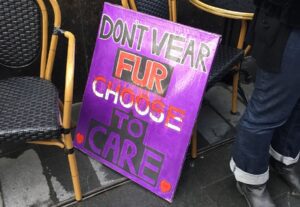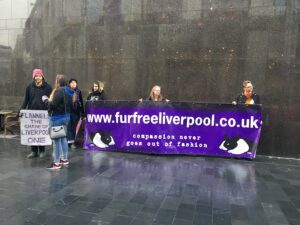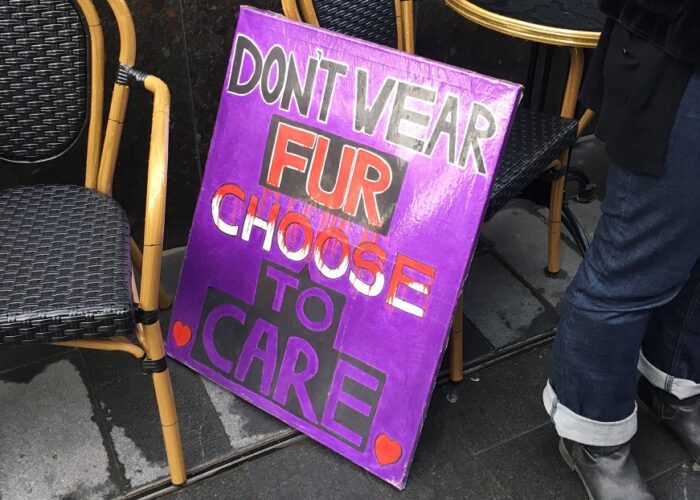
Protesters gathered outside Flannels in Liverpool One on Saturday to demonstrate against the luxury retailer’s sale of real fur products.
The Merseyside Animal Rights group held a ‘Boycott Flannels’ protest as part of a wider national campaign to urge the designer brand chain to stop stocking real fur.
In 2013, animal rights groups accused Flannels of backtracking on a promise that the store would pursue a policy of stocking fur-free products.
Since then, the ‘Boycott Flannels’ campaign has staged numerous protests across the UK, attracting widespread public attention.
Katy Brown, a spokesperson for Merseyside Animal Rights, told JMU Journalism: “They’re selling fox fur, mink, rabbit, coyote, raccoon, and we’re just here to educate people and highlight what’s going on.
“They’re quite capable of making money without selling real fur. It’s not going to mean their business goes under or anybody’s going to be out of a job, it just means that they’re choosing compassion over cruelty.”
YouTube: PETA UK
Although farming and killing animals for their fur was completely banned in the UK by 2003, retailers are still allowed to sell products made with real fur.

Over 40 million animals are still killed for their fur, with 85% bred on animal farms worldwide and the rest captured in the wild.
The most common kinds of fur used for fashion are mink and fox, as sold in Flannels. Europe alone is responsible for 70% of mink fur production.
Marie Jones, 60, told JMU Journalism: “I’m just amazed, because to me, selling fur is a backwards step.
“All of a sudden real fur is back in fashion, and yet we seem to think we’re doing a lot more for the environment, but we’re right back to butchering these animals again and farming for the sake of it.”
JMU Journalism made several attempts to contact Flannels for comments on the protest and their sales policy, but we did not receive a response.

